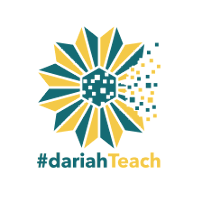We thank warmly all our presenters for their slides or poster image of the #dariahTeach workshop and conference, 22-24 March 2017 in Lausanne. Program here.
1. Keynote lectures
Mark Brown, Dublin City University (IE), Shaping the Future of Digital Humanities: Off the Rails and Other Critical Tales
Darja Fišer, University of Ljubljana (SI), CLARIN ERIC director of User Involvement, Integrating CLARIN language resources into the classroom environment
Marianne Huang & Susan Schreibman, Aarhus University (DK) & Maynooth University (IE), #dariahTeach Community-based Online Education
Jeremy Knox, University of Edinburgh (UK), Teaching in the open: developing a critical practice
Susan McKenney, University of Twente (NL), Curriculum materials that support teachers and their learning
Rikke Toft Nørgård, Aarhus University (DK), New (infra)structures for the future university: beyond digitized higher education?
2. Papers and posters
Monica Berti, Institut für Informatik, Leipzig University (DE), SunoikisisDC. An International Consortium of Digital Classics Programs
Michael Bourgatte & Laurent Tessier, Paris Catholic University (FR), Video ressources and open education: challenges and perspectives
Marco Büchler, Greta Franzini, Emily Franzini, Maria Moritz, University of Goettingen (DE), From Written Manuscripts to Big Humanities Data
Carmen Sophia Cadenas, European Documentation Center (IT), The Digital Librarian as an Ethnographic Researcher: going undercover in the classroom to collect data on the use of digital resources in language learning
Adam Crymble, University of Hertfordshire (UK), White, Male, North American – Challenges of Diversifying the Programming Historian
Vinayak Das Gupta, Maynooth University (IE), Developing Electronic Teaching Resources for Indian Universities
Nicole Durisch Gauthier and Lyonel Kaufmann, University of Teacher Education, State of Vaud (CH), Digitally enhanced teaching and learning as an answer to the challenge of large classes? An exploratory study
Maryam Foradi and Gregory Crane, University of Leipzig (DE) & Tufts University (USA), Online Vocabulary Learning through Generating Manual Translation Alignment Data in the Context of Citizen Science Project
Greta Franzini, Emily Franzini, Elisa Cugliana, Nicoletta Guido and Marco Büchler, University of Goettingen (DE) & Università Ca’ Foscari (IT), Teaching Data Science – An Experience Report from Six International TRACER Tutorials and Workshops with Mixed Classes
Jean-Luc Gilles, University of Teacher Education, State of Vaud (CH) & Salvatore Tinnirello, Assess Group SA (BE), DOCIMO: an Online Platform Dedicated to the Construction and the Quality Management of Training Evaluations in a Digital Era
Elena González-Blanco & Clara Martínez, LINHD-UNED (ES), Susanna Allés Torrent, Columbia University (USA) and Gimena del Rio Riande, Secrit-Conicet (Argentina), DH Training in Spanish: Digital Humanities as an e-learning platform to teach between Spain and Latin America
Frédéric Kaplan and Isabella di Lenardo, EPFL (CH), Optimized scripting in Massive Open Online Courses
Péter Király, GWDG, Goettingen (DE), Measuring metadata quality. A quick overview
Moshe Lavee, University of Haifa (IL), Back and Forth: A Case Study in Classical Rabbinic Literature as a Model for Digital Humanities
Ivan Madjarov, Aix Marseille University, Toulon University, CNRS, ENSAM, LSIS (FR), Towards a responsive m-Learning design Service-based Framework for Multi-Device Learning Content Adaptation
Michail Maiatsky & Ekaterina Velmezova, UNIL (CH), Natalia Boyarskaya & Alexey Boyarsky, EPFL (CH), How to explore and to teach a cultural epoch through an interactive library (VicoGlossia)
Karen O’Donnell, CODEC Research Centre, Durham University (UK), False Binaries: Digital Education and the Challenge of Training Priests Online
Gábor Pálko, Petőfi Literary Museum, Budapest (HU) & Gábor Tamás Molnár, Eötvös Loránd University, Budapest (HU), Active text apprehension and teaching literature through/in the medium of the information and communications technology (ICT)
Michael Piotrowski, University of Lausanne (CH), History is the Future of Online Learning
Neale Rooney, Maynooth University (IE) The digital in the Classroom: a detailed study of the 1916 in transition project
Sasha Rudan, Oslo University (NO), Holistic education – DH toolset and methodologies for sustainable and frictionless science-art-society cycle
Philippe Ruffieux, University of Teacher Education, State of Vaud (CH), Sqily : collective validation of skills
Kassahun Tilahun, Debre Berhan University (Ethiopia), Addressing Diversity in Distance Learning: Theoretical Foundations and Practical Approaches of Using Open Educational Resources in Higher Education Institutions of Ethiopia
Daniela Vaj, University of Lausanne (CH), A new digital Wunderkammer for education


